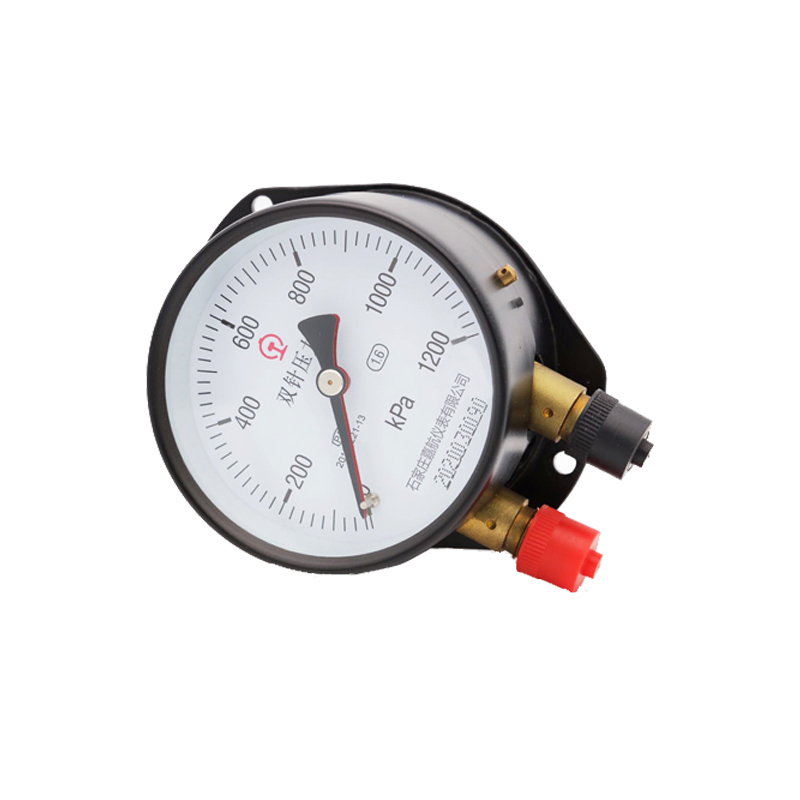
Νοέ . 07, 2024 11:42 Back to list
Needle Differential Pressure Gauge for Monitoring Water Filter Performance and Efficiency
Understanding the Differential Pressure Gauge with Needle Indicator for Water Filters
In the realm of fluid mechanics and filtration systems, monitoring pressure is crucial for efficiency and safety. One of the key instruments used in this context is the differential pressure gauge with needle indicator, particularly applied in water filtration systems. This article delves into the importance, functionality, and applications of this instrument in maintaining filter performance.
What is a Differential Pressure Gauge?
A differential pressure gauge is an instrument designed to measure the pressure difference between two points within a system. It is especially valuable in filtration applications where it helps assess the condition of filters by determining how much pressure builds up across the filter medium. This pressure difference is indicative of clogging or fouling, which can affect the flow rate and efficiency of the filtration system.
The Working Principle
The fundamental operation of a differential pressure gauge involves two pressure taps connected to different sides of a filtration medium. When water flows through the filter, the pressure on the inlet side may be higher than the outlet side due to resistance from accumulated debris, sediment, or other particulates in the filter. The gauge measures this difference and indicates it on a dial, typically marked with a needle.
When the system operates under normal conditions, the needle points to a baseline pressure differential, indicating that the filter is working effectively. As particulates accumulate, the differential pressure increases, and the needle shifts accordingly. This alerting mechanism assists users in taking necessary actions, such as cleaning or replacing the filter, to ensure optimal performance.
Importance of Monitoring Differential Pressure
1. Operational Efficiency Monitoring differential pressure in water filters is essential to maintain operational efficiency. A clean filter allows for optimal water flow; however, as dirt accumulates, the demand for energy increases to push water through. This inefficiency can lead to higher operational costs and energy consumption.
2. Maintenance Scheduling By regularly monitoring the differential pressure, operators can schedule maintenance or replacement of filters before a significant drop in performance occurs. This proactive approach prevents unexpected downtime and costly repairs, ensuring a consistent supply of filtered water.
differential pressure gauge with needle for water filter

3. System Longevity Regularly checking and managing the differential pressure can prolong the life of both the filter and the entire filtration system. Overworking a filter due to high pressure can lead to material failure and costly replacements.
Applications in Water Filtration Systems
Differential pressure gauges with needle indicators are commonly used in various applications involving water filtration systems
- Industrial Water Treatment In industrial settings, maintaining water quality is crucial. Differential pressure gauges help monitor large-scale filtration systems, ensuring that water used in processes meets required standards.
- Municipal Water Supply Municipal systems benefit from these gauges to monitor water quality and flow in supply lines, keeping the community's water safe and reliable.
- Aquaculture and Aquarium Systems Maintaining optimal water conditions is vital in aquaculture and aquarium systems. Differential pressure gauges help monitor filtering processes, ensuring a healthy environment for aquatic life.
- HVAC Systems In heating, ventilation, and air conditioning (HVAC) applications, differential pressure gauges help monitor water filtering in chillers and cooling towers, contributing to energy efficiency and equipment reliability.
Conclusion
The differential pressure gauge with needle indicator is an invaluable tool in the management of water filtration systems. By providing real-time data on the condition of filters, it empowers users to make informed decisions regarding maintenance and system management. Ultimately, this leads to improved efficiency, cost savings, and enhanced operational longevity. For anyone involved in fluid management, incorporating this instrument into their regular monitoring routine is a step toward achieving optimal performance and reliability in water filtration.
-
High-Quality Pressure Gauge on Fire Extinguisher - Reliable Water Fire Extinguisher Pressure Gauge Suppliers & Exporters
NewsJul.08,2025
-
High-Quality Water Pressure Differential and Gauge Kit Reliable Manufacturers & Competitive Quotes
NewsJul.08,2025
-
High-Precision Digital Diaphragm Pressure Gauge – Reliable Manufacturer & Competitive Quotes
NewsJul.07,2025
-
Wholesale Diaphragm Pressure Gauge Supplier - Premium Quality & Competitive Price
NewsJul.07,2025
-
Digital Diaphragm Pressure Gauge Reliable & Precise Measurement Top Manufacturers Quotes
NewsJul.06,2025
-
High Accuracy Piston Type Differential Pressure Gauge - Reliable Manufacturers & Competitive Quotes
NewsJul.06,2025
